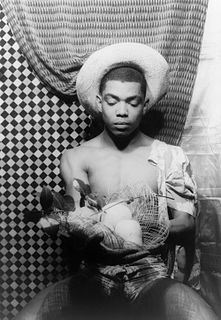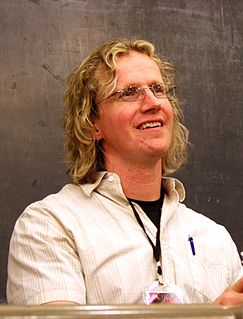A Quote by Alvin Ailey
From his roots as a slave, the American Negro - sometimes sorrowing, sometimes jubilant but always hopeful - has touched, illuminated, and influenced the most remote preserves of world civilisation. I and my dance theater celebrate this trembling beauty.
Related Quotes
Always the seer is a sayer. Somehow his dream is told; somehow he publishes it with solemn joy: sometimes with pencil on canvas, sometimes with chisel on stone, sometimes in towers and aisles of granite, his soul's worship is builded; sometimes in anthems of indefinite music, but clearest and most permanent, in words.
You know, artists are influenced by other artists. We're all deeply influenced by what's around us; we don't make anything cold. Sometimes we think that we do. But within that, the most important part is that even though we're influenced, what are the levels of invention that we carry forth even as we've been influenced by something that's come before?
We should emphasize not Negro History, but the Negro in history. What we need is not a history of selected races or nations, but the history of the world, void of national bias, race, hate, and religious prejudice. There should be no indulgence in undue eulogy of the Negro. The case of the Negro is well taken care of when it is shown how he has far influenced the development of civilization.
It is central to Christian living that we should celebrate the goodness of creation, ponder its present brokenness, and, insofar as we can, celebrate in advance the healing of the world, the new creation itself. Art, music, literature, dance, theater, and many other expressions of human delight and wisdom, can all be explored in new ways.
I am NOT a belly dancer. I have never been one, and never will be. What I do is not what Hollywood vulgarly calls 'belly dance', but it's art. I have traveled the world to prove that my dance is not a dance of the belly but a refined, artistic dance full of tradition, of dreaming and beauty. Oriental dance is primarily an expressive dance; in that resides the beauty.
A heavenly location for the actions of the savior gods, including the death of Christ, would also have been influenced by most religions' ultimate derivation from astrotheology, as in the worship of the sun and moon. For this dimension of more remote Christian roots, see the books of Acharya S, especially 'Suns of God.






































